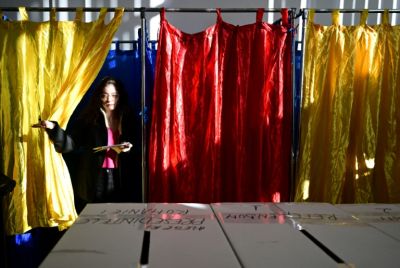Labor Rights Advocates: A Dozen Wal-Mart Suppliers Received 482 Federal Citations

The National Guestworker Alliance said Tuesday it has uncovered 482 federal citations for safety, health, wage, and hour violations, among 12 of the 18 suppliers of Wal-Mart Stores (NYSE: WMT) that the organization has been investigating.
These companies use foreign temps working legally in the U.S. on H-2B visas.
This is a disturbingly high number of citations for such a small number of suppliers we investigated, said Stephen Boykewich, an NGA representative.
The names of the suppliers will be announced on Friday, a day before a demonstration is scheduled to be staged in front of the New York City home of M. Michele Burns, who has been on the board of the world's largest retailer since 2003.
A 24-hour hunger strike will commence Saturday by former workers of C.J.'s Seafood of Breaux Bridge, La., who went on stirke on June 4, claiming forced labor, work shifts up to 24 hours with no overtime, constant surveillance, physical threats and prevention of movement by the seafood processor that supplies Wal-Mart with crawfish meat.
Wal-Mart has said it investigated the complaints and was unable to substantiate the allegations. The Department of Labor's Wage and Hour division, the Occupational Safety and Health Administration and the U.S. Equal Employment Opportunity Commission are still investigating the allegations.
The protesters, representing workers from the Mexican border state of Tamaulipas, are demanding that Wal-Mart do more to implement its Standards for Suppliers by thoroughly investigating allegations of labor and human rights abuses by U.S.-based suppliers that use H-2B workers.
Wal-Mart has shown a reckless disregard for its obligation to raise its suppliers' working conditions above the level of forced labor, said New Orleans-based NGA Executive Director Saket Soni. Every rock we lift on Wal-Mart's supply chain turns up more potential evidence of forced labor.
The NGA compiled a list of suppliers whose names appear at the Office of Foreign Labor Certification and then cross-referenced those company names with government databases, such as those that track violations registered by the Occupational Safety and Health Administration and other federal agencies.
Many employers rely on a roster of guest workers to work in some of the lowest-paid positions in companies that rely on a dependable pool of seasonal workers, especially in the seafood processing and landscaping industries. The workers are allowed to enter the country for a set number of months before leaving. Workers may return for up to three years and also later re-apply for new visas.
The Department of Labor recently tried to implement new rules to the H-2B program that are vehemently opposed by employer advocates, such as the U.S. Chamber of Commerce and small businesses, who successfully petitioned in April for a judicial injunction that was valid for 60 days. Chief Justice M. Casey Rodgers of the U.S. District Court for the Northern District of Florida in Pensacola approved the injunction.
The 60-day deadline passed last week and on Saturday Rodgers issued a stay until further notice ruling, a court clerk said on Tuesday.
The indefinite suspension of the ruling on the injunction came after the Senate Appropriations Committee hobbled the Department of Labor from implementing the new rules after Sen. Richard Shelby (R-Ala.) added an amendment to the labor appropriations bill blocking any funds from next year's budget from paying for enforcing the new rules. While the amendment still needs to be passed in the full Senate, the inclusion of the amendment delays the implementation of the new rules until at least next year. This is good for employers, because it buys more time for them to use another season of workers under the current guidelines.
The amendment to the markup received bipartisan support, including backing from Sens. Mary Landrieu, D-La., and Barbara Mikulski, D-Md., who represent states with large seafood processing industries. Sen. Tom Harkin, D-Iowa, and others voted against the amendment.
The rules that are opposed include guaranteeing the worker will receive 75 percent of the hours certified in any 12-week period, and if not the employer must compensate the worker for the difference; requiring the employer to pay round-trip airfare and subsistence costs; lowering the amount of time an H-2B worker can be in the country to nine months, down from 10, before the worker is required to leave the country for at least three months before returning; and prohibiting employers or recruiters from passing off the costs of visas or charging fees to H-2B workers in the transnational recruitment process.
Organizations including the Coalition to Save America's Seafood Industry, are opposed to any measures that raise company operating costs.
© Copyright IBTimes 2024. All rights reserved.






















